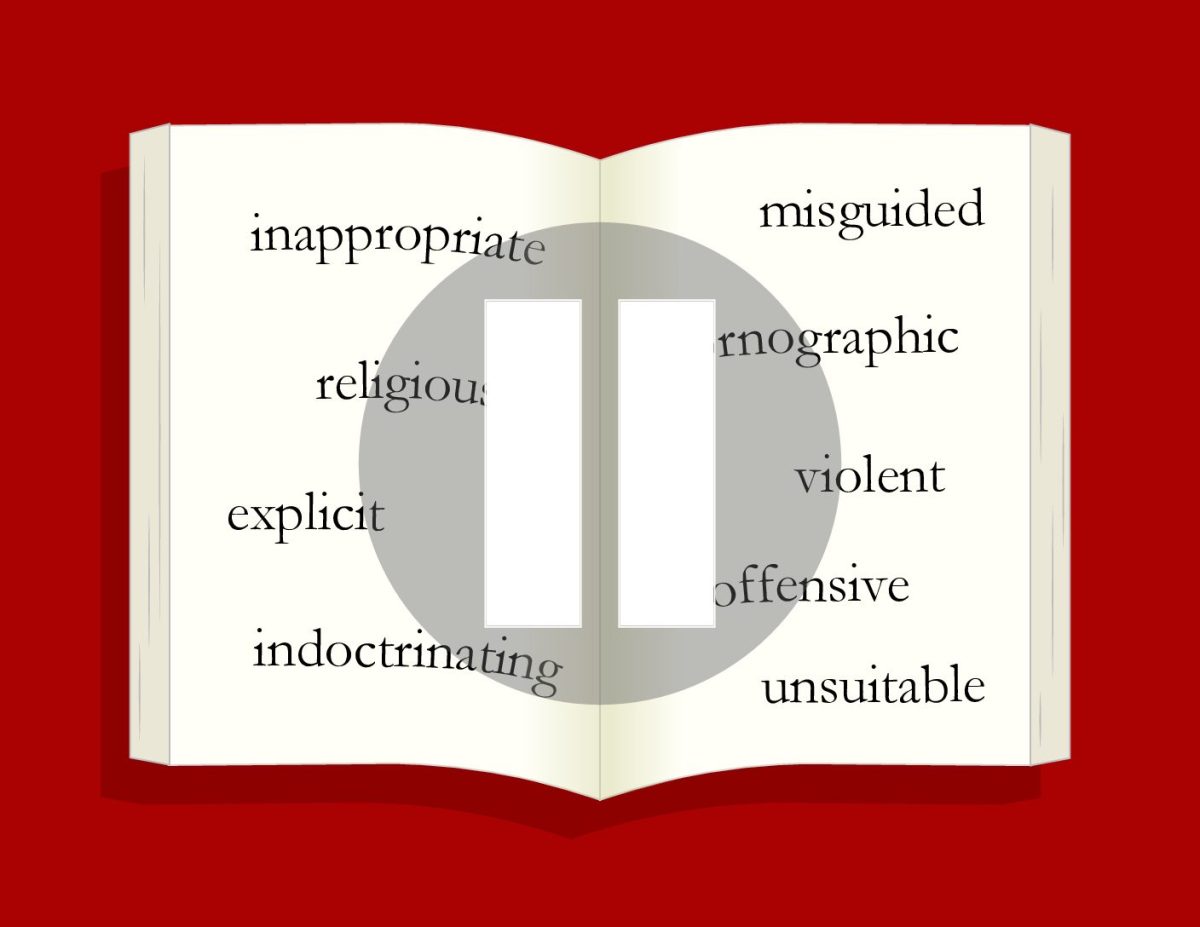School Board Vice Chair Gene Trent attempted to ban every book considered for removal from Brevard Public Schools at the Nov. 14 school board meeting. His suggestion was criticized by District 5 School Board Member Katye Campbell and District 3 School Board Member Jennifer Jenkins, who said a clean sweep of the listed books would remove seemingly harmless and educational books for all grade levels, regardless of which grades for which the novel was deemed inappropriate.
“[The Brevard Book Review Committee] would probably be able to go through 15 to 19 books per year … and with the list from the [Department of Education], we have about 298 books on the list currently that have already gone through [the book review] process,” Trent said at the school board meeting. “If you do the math, we’re a little bit shy of 15 years to go through that process. Frankly, I don’t think our kids should be sitting around and waiting for that.”
In Brevard County alone, 47 books are pending review. Florida House Bill 1467, effective at the start of 2023, requires any books under review to be removed from school and classroom libraries until the book has been vetted for pornography and race-based information. Gov. Ron DeSantis signed the bill into law to increase parental rights over children’s education.
The law required libraries, media specialists and others selecting school books to be trained by July 1 under the Florida Department of Education’s program before reviewing the material. Principal Rick Fleming said he reviews hundreds of books individually with the media specialist and teachers in compliance with the bill.
“If the committee says a book is under review, then we’ll call it based on the process,” Fleming said. “If the process is stagnant, it could work out in favor of those who don’t wish to ban books because there’s no process [enabling more books to be put under review].”
The past five district Book Review Committee meetings have been canceled, meaning no books have been vetted since June 2. Jenkins said she is concerned about books becoming easier to remove and being kept off shelves for a long time, if not permanently.
“There’s been a suggestion [from Campbell] for us to have more than one [book review] committee to get through [the vetting] faster, but some school board members are resistant,” Jenkins said. “I can only speculate the reason why is because they prefer to have [the books] off the shelves longer.”
At that book review conference, a majority of the board voted to remove the “participant” committee members, who were teachers and parents who voted along with the committee. The board chose to remove public comments from the meetings, so the remaining committee is made up of five members, each selected by a school board member.
On Sept. 7, Sheri-Lynn Diskin, who was selected by District 4 School Board Member Matt Susin, resigned from the committee, stating that she is uncomfortable that “titles [are] being removed from the library shelves for all students, [which] was not the intent of the law.”
“I am very disappointed by the book reconsideration process as a whole,” Diskin said. “I recognize that, as part of this committee, we were tasked with removing inappropriate content from our libraries. However, it is important to understand that many selections that came before the committee could have remained on library shelves, with restrictions if necessary, under the law.”
AP English Literature and Composition teacher Lynne Bramlett said “the system really isn’t in place to ever really get the books back on our shelves.”
“Parents should be responsible for what books their children read and not implement [their opinions] on everybody else’s children,” she added. “That would be a huge detriment if we started throwing all the books that anybody has put on a reconsideration list anywhere and then taking them away from our educational system.”
Senior Elena Hernandez, an AP Literature student, said she “[wishes] people who cared more were in charge [of the book reviews].”
“I’m honestly exasperated,” she said. “Unfortunately, I’m used to committees not actually getting much done. I’m used to change happening very slowly, if at all, throughout my lifetime. The government has not adapted to the changing world today. They keep canceling these meetings, and it feels like they’re not making an effort to reschedule.”
Media Specialist Mike Drake said the school board tells public schools which books are under consideration and gives the school the liberty to decide what to do with them. Brevard County serves students who are 18 years old and older, which makes book vetting more complex.
“Some schools may keep the books behind the counter and students have to be 18 years old to access them,” he said. “Others, like us, have chosen to keep our regular policies in place: if a book is labeled [Young Adult], then seventh and eighth graders need to have parent permission [to read them].”
After more than six months of delay due to Diskin’s resignation and the change in composition of the committee, the book review meetings resumed Dec. 1. At the meeting, the members reviewed “Sold” by Patricia McCormick, which tells the story of a young teenager sold into sexual slavery. The committee recommended for the book to be available to high school students but will make its executive decision Dec. 12.
“I do not want sexually explicit graphic pornography in literature format in front of my children,” Board Chair Megan Wright said. “No, absolutely not. I have kids in the same school system. But I also don’t want to take a book out of circulation that could be extremely beneficial for a child and they could learn something. This book that they just reviewed [Dec. 1] is a perfect example.”
Last year, Fleming and Drake chose to remove “The Kite Runner” by Khaled Hosseini from the AP Literature curriculum. Bramlett said she cried when she heard she could no longer teach the book to her students.
“It’s a book that all my students relate to,” Bramlett said. “They almost all use it on the AP exam. It teaches about forgiveness, redemption and the culture of the Middle East. It was a book that encompassed many themes that I think are very important for seniors to be learning about.”
Chief Reader of AP Literature Steven Price said “The Kite Runner” is the most commonly banned book, but is a “foundational [book] for many teachers”.
“Rudine Sims Bishop writes about literature having the potential to be ‘mirrors’ or‘windows,’” Price said. “When books are mirrors, they allow students to see themselves reflected [and] can learn about their own identity. When books are windows, they provide students with a safe way to see others and to see new experiences other than own.”
Since AP Literature is a college course, Fleming said there shouldn’t be limits placed on the course’s book selection.
“If a child or parent is offended by any reason [over the content of an AP Literature book], there’s always an alternative assignment,” he said. “But if there are questions on the AP exam that possibly reference literature like ‘The Kite Runner,’ I worry for our kids.”
Price said Florida teachers have directly contacted him to discuss their growing fear of the book-banning movement.
“A teacher in South Florida described the process for approving texts at their school, and how two weeks into the semester, there was nothing for students to read,” Fleming said.
Speech teacher Heather da Silva said as “a firm believer in the power of spoken and written word,” she is worried that censorship is going too far.
“You have a small hyper-conservative group of people driving a lot of these decisions,” she said. “They are terrified of anyone who does not walk like, talk like, think like, act like them. I had a classroom library for a long time, but any of the books that have been rumored to be reconsidered, I’ve told friends to get them. It hurts on an ethical level, a professional level and a personal level.”












































